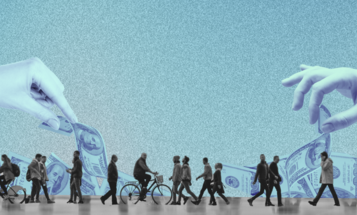
The Inconvenient Truth About High Gas Prices
Okay, let’s make this clear one more time. The way to lower gas prices is to stop oil speculation, ratchet down Iran war talk, and make real investments in alternative fuel supplies. And the way to be less negatively affected by price hikes is to decrease our oil-intensive and car-centric lifestyle so that we spend less time fretting at the gas pump. These are not catchy or easy fixes, but they are the only ones that will work.
While the President is the easiest target to blame, there is actually very little that he can do in the short-term. As Demos’ David Callahan pointed out, gas prices surge quickly but government policy moves slowly. Gas prices have spiked episodically for decades and each time, the President in office takes a popularity hit. And yet, there is very little the President can do in the short-term to lower gas prices.
Most of the solutions being offered -- like approve the Keystone pipeline, open up more areas for drilling, etc. -- will have zero impact on the current prices because they can’t increase supply in the short-term. The Keystone pipeline will take months to build so how does approving it lead to an increase in oil supply now? Not to mention that there is no guarantee they will have any impact in the long-term because there is no guarantee that any further oil produced will stay here in the U.S.
Here’s the inconvenient truth: We are in this bind only mainly because of our consumption patterns. Because we are so dependent on oil, we are particularly vulnerable to changes in oil prices. In 2010, Americans consumed 19 million barrels of oil per day. The U.S. is actually the third largest oil producing nation, behind only Saudi Arabia and Russia. In fact, U.S. crude oil production is at the highest level in decades. There is no shortage of oil produced domestically but no matter how much is produced, it cannot meet our demand. We consume 20 percent of the global oil supply but only have 2 percent of its reserves. But, if we changed our consumption patterns, we could be a net exporter of oil and energy and wouldn’t have to suffer through these continual gas price fluctuations.
The solutions to high gas prices are simply not going to change. Either we start taking responsibility for our unsustainable consumption patterns or continue to suffer through these spikes. One way to decrease our oil and gas consumption is through increased use of public transportation. As I highlighted, taking public transportation saves billions of gallons of gas each year. Also, the new fuel efficiency standards for cars will help reduce our oil consumption. Other small steps like car pooling or driving less and walking more will also help reduce our consumption.
We know what actions to take, so let's take them.



